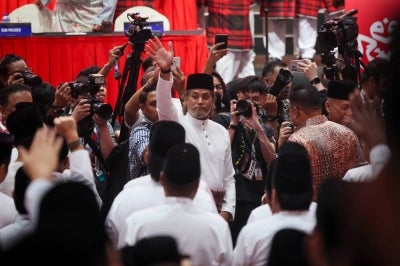Marriage, procreation and the demographic implications of Malaysia's future
IN my exploration of the ever-changing landscape of Malaysia, where traditions intermingle modern transformation, the topic of marriage has emerged as a fascinating focal point. Especially when you are part of the structure.

IN my exploration of the ever-changing landscape of Malaysia, where traditions intermingle modern transformation, the topic of marriage has emerged as a fascinating focal point. Especially when you are part of the structure.
A few decades ago, education became a key component in our lives where many believed you can do anything (still true), be anything (partially true) if you have knowledge and went to college thus many people were taught to marry once they were more stabilised both financially and maturely with a good job.
Things have changed and the contemporary reality now shows more people have taking the plunge marrying young, early 20s and some even still in school. Those who actually want to marry, of course.
As I reflect on the sacred significance that marriage holds in Malaysian society, particularly for Malaysian Muslims, recent data from the Statistics Department Malaysia raised some thought-provoking questions. The statistics revealed a substantial 43.1 per cent increase in the divorce rate since 2022, coupled with a marginal 0.5 percent decrease in the number of marriages.
This prompted me to dive into the underlying shifts in societal attitudes towards marriage, procreation, and the demographic implications for a nation on the cusp of an ageing society.
Marriage, historically linked to procreation, plays a crucial role in determining the number of childbirths in Malaysia. The DOSM data hints at a potential disconnection between the once intertwined concepts of marriage and childbearing.
Traditionally, the institution of marriage was deeply associated with the building of families, and a decline in the number of marriages might signify a broader shift in societal priorities. Today, the pessismist in many would go certain to lengths and say marriage was just a scam, with many wives arguing it only benefits one person - and that person was the man.
Meanwhile, the woman does not only become the mother to her children but the new mother to an adult man-child. I am certain all my friends and families loves their husbands but you can't help but to listen to them nagging away about their husbands.
As Malaysia grapples with an ageing population, characterised by a rising number of senior citizens, this shift in marriage and childbirth patterns becomes more significant. An ageing nation poses unique challenges, with implications for healthcare, social support structures, and economic dynamics.
With the demographic scale tipping towards more senior citizens than youths, Malaysia is entering uncharted territory. "Look East" our former Prime Minister Tun Dr Mahathir Mohamad would say, and when we look at Japan - we definitely do see the concerns.
Among the biggest problems faced in Japan include social isolation as traditional family structures evolve, and younger generations migrate to urban areas for employment leaving many find themselves living alone, without regular social interactions. Healthcare costs as has also become a concern as the elderly often require more medical attention coupled with pension and financial security as many face challenges covering healthcare costs, especially if they're on fixed incomes.
The societal gaze on unmarried individuals, especially women, adds layers of complexity to the narrative. However, I find solace in the growing prominence of freedom of choice in Malaysia. The narratives are slowly changing, with less parents pressuring their children to rush into things.
The Covid-19 pandemic fostered Malaysians to be more accepting of divorce as a viable solution.Yet, the potential interplay between the rising divorce rate and the decreasing interest in marriage prompts further investigation.
Could those advocating for divorce inadvertently contribute to the decline in marriage rates? This cause-and-effect dynamic warrants careful consideration.
Malaysia stands at a crossroads, balancing the preservation the marriage instituion and continuous procreation with the evolving choices of its people. The demographic shift towards an ageing nation further highlighted the need for discussions on marriage, family and societal expectations to ensure a resilient and sustainable future.
Download Sinar Daily application.Click Here!















